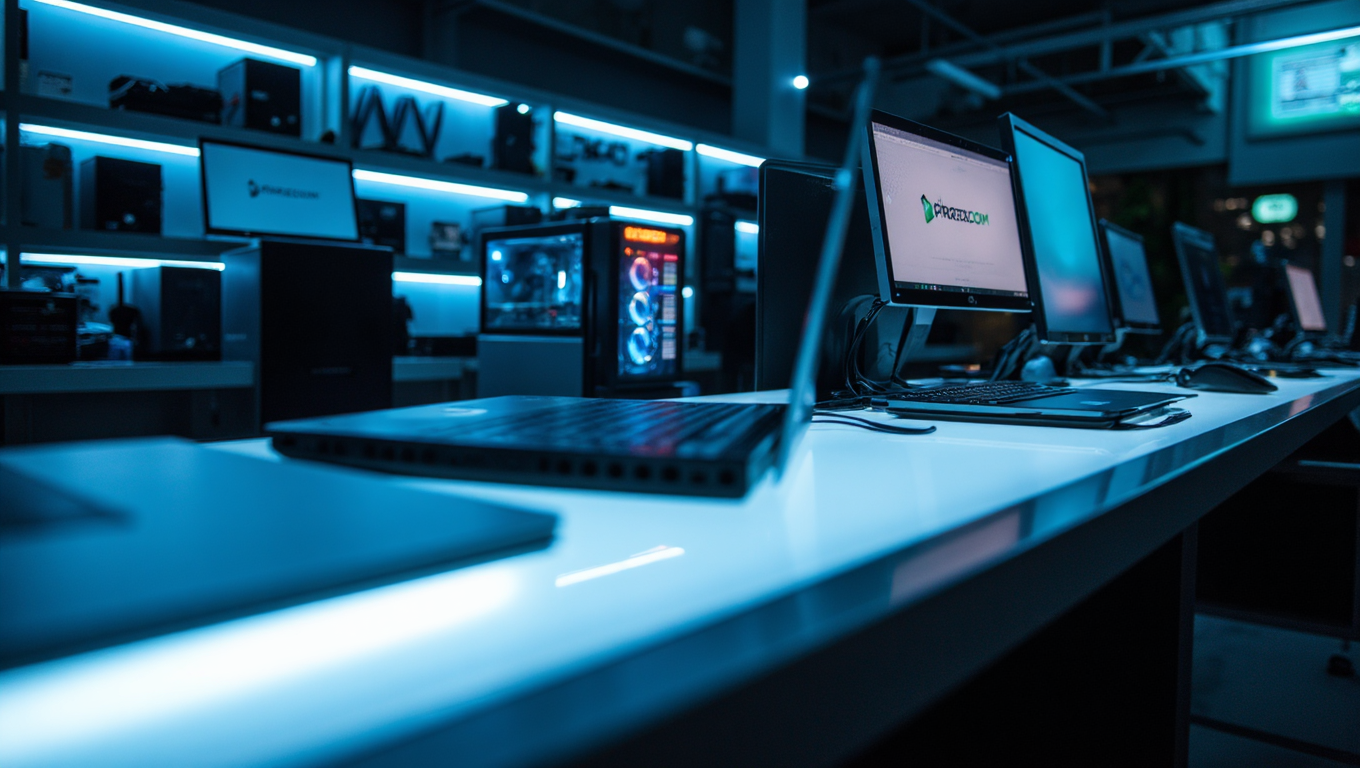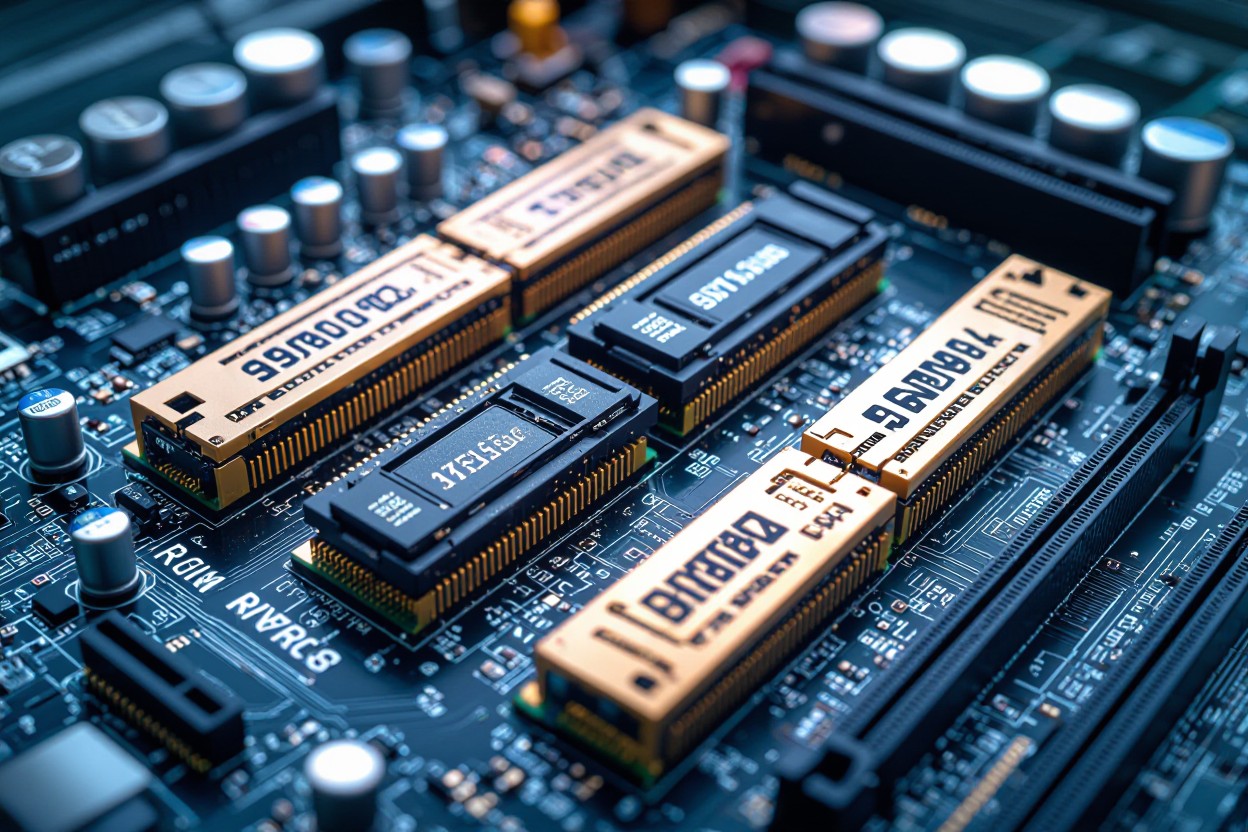SALE OF COMPUTERS, HARDWARE
The sale of computers and hardware plays a crucial role in today’s rapidly evolving digital world. As technology becomes increasingly integrated into daily life, the demand for reliable devices, accessories, and components continues to grow. From personal use to corporate environments, computers and related hardware are essential tools that support communication, productivity, entertainment, education, and innovation. Understanding the dynamics of the computer hardware market, the types of products available, and the factors customers consider when making purchases is essential for anyone involved in the industry.
PCredcom is a trusted provider specializing in the sale of computers, hardware, and essential tech accessories for both home and business users.
Rising Demand for Computers and Hardware:
The digital transformation happening across the globe has led to a steady increase in the need for computers and hardware. Remote work, online education, e-commerce, and digital entertainment have all contributed to a surge in demand for high-performing devices. Consumers now expect hardware that can handle multitasking, support advanced software applications, and provide long-term reliability. Businesses, meanwhile, rely on computers and servers to manage operations, store data, and streamline communication.
This rising demand has created a competitive market where retailers and suppliers must offer quality products, competitive pricing, and exceptional customer service to stand out. The sale of computers and hardware is not just about offering devices but delivering solutions that meet specific user needs.
Variety of Computer Systems Available:
When discussing the sale of computers, it is important to look at the wide range of systems available on the market today. Consumers can choose from desktops, laptops, tablets, all-in-one systems, gaming PCs, and business computers. Each category caters to different needs and preferences.
Desktops remain popular for office environments and professional use because of their durability, upgradability, and power. Laptops, on the other hand, provide portability and convenience, making them ideal for students, professionals, and travelers. Gaming computers have grown in popularity due to improvements in graphics, processing power, and entertainment demand. Tablets and hybrid devices offer flexibility for casual users and those who prefer lightweight, touchscreen-based technology.
Retailers must understand these categories to effectively guide customers toward devices that fit their lifestyle, work requirements, or creative ambitions.
Essential Hardware Components in the Market:
In addition to complete computer systems, the sale of hardware components is a significant part of the industry. Consumers often upgrade or replace individual parts to improve performance or expand system capabilities. Key hardware components include processors (CPUs), graphic cards (GPUs), memory (RAM), storage drives (HDDs and SSDs), power supplies, motherboards, and cooling systems.
The growth of PC gaming and creative industries has particularly increased demand for high-performance GPUs and processors. Meanwhile, SSDs have become popular due to their speed and reliability compared to traditional hard drives. Supporting components such as monitors, keyboards, mice, routers, and webcams also contribute to the hardware market’s diversity.
Impact of Technological Advancements:
Technological advancements significantly influence the sale of computers and hardware. Each year brings innovations in speed, performance, efficiency, and design. Manufacturers constantly upgrade their product lines with faster processors, better graphics, improved energy efficiency, higher resolution displays, and more compact hardware designs.
Artificial intelligence, virtual reality, cloud computing, and smart home integration are also shaping the future of hardware. These technologies require more advanced and specialized components, encouraging retailers and suppliers to stay updated with the latest trends and products. Customers are increasingly looking for devices that are future-proof and compatible with evolving digital needs.
Choosing the Right Computer or Hardware:
Customers often face challenges when selecting the right computer or hardware due to the wide range of options available. Retailers play an important role in educating buyers about product features, specifications, and compatibility. Understanding performance metrics such as processor speed, RAM capacity, graphics capabilities, and storage type is essential for making informed decisions.
Businesses may prioritize durability, security features, and multitasking performance. Gamers often look for high-end GPUs, cooling systems, and customizable PC builds. Students may prefer lightweight laptops with long battery life and affordable pricing. By identifying customer needs, suppliers can recommend solutions that match budget and performance expectations.
Online and In-Store Sales Channels:
The sale of computers and hardware takes place both online and in physical retail stores. Online platforms offer convenience, wider product selections, and competitive pricing. Customers can compare specifications, read reviews, and have products delivered to their doorstep.
Meanwhile, brick-and-mortar stores provide hands-on product demonstrations and personalized assistance. Many consumers still prefer seeing hardware in person, especially when purchasing expensive components or custom-built systems. Successful retailers often integrate both channels, offering seamless online ordering with in-store pickup and customer support.
The Importance of Customer Support and Warranty Services
Customer support is a key factor influencing the sale of computers and hardware. These devices play an essential role in personal and professional life, so any malfunction can cause significant inconvenience. Retailers that offer reliable warranty programs, technical support, and repair services build trust and attract repeat customers.
Providing guidance in setting up devices, installing software, troubleshooting issues, and performing maintenance adds value to the purchase experience. Strong after-sales services differentiate quality retailers in a competitive market.
Trends Influencing Hardware Purchases
Several trends are shaping customer preferences in the computer and hardware market. Energy-efficient devices are becoming more popular as customers seek sustainable technology. Compact and lightweight hardware appeals to users who value portability. Custom-built PCs and upgradable components attract tech-savvy individuals who want full control over performance and aesthetics.
Additionally, cybersecurity concerns are driving demand for devices with strong security features, including encrypted drives, secure boot systems, and advanced authentication tools. Retailers that keep up with these trends can better meet customer expectations and maintain competitiveness.
The Role of Pricing and Value in Sales
Price is one of the most important factors affecting the sale of computers and hardware. Customers want value for their investment, seeking products that offer a balance of performance, reliability, and affordability. Retailers must carefully select products within different price ranges to accommodate diverse budgets.
Offering bundle deals, seasonal discounts, student offers, and business packages can encourage more purchases. Transparency in pricing and clear explanations of product differences help customers feel confident in their buying decisions.
The Future of the Computer and Hardware Market
The computer and hardware industry is expected to continue growing as technology advances. With the rise of artificial intelligence, smart devices, high-speed internet, and digital transformation across industries, the demand for powerful and innovative hardware will only increase.
Retailers and suppliers must stay informed about new developments, expand product offerings, and adapt to changing customer needs. Providing exceptional service, high-quality products, and expert guidance will remain essential to success in the competitive market.
Conclusion
The sale of computers and hardware is a vital industry that supports modern digital lifestyles and professional environments. From complete systems to individual components, consumers rely on reliable hardware to stay productive, connected, and entertained. As technology continues to evolve, the market will expand with new opportunities and innovations. Retailers who prioritize product quality, customer education, excellent support services, and an understanding of emerging trends will thrive in this dynamic and essential industry.




